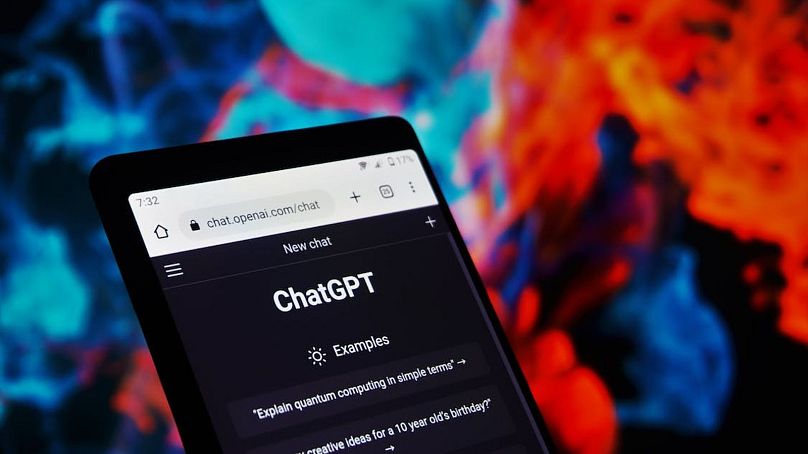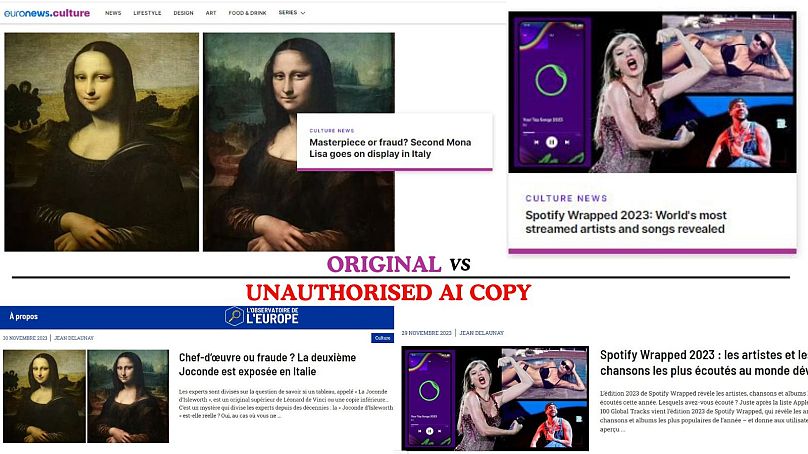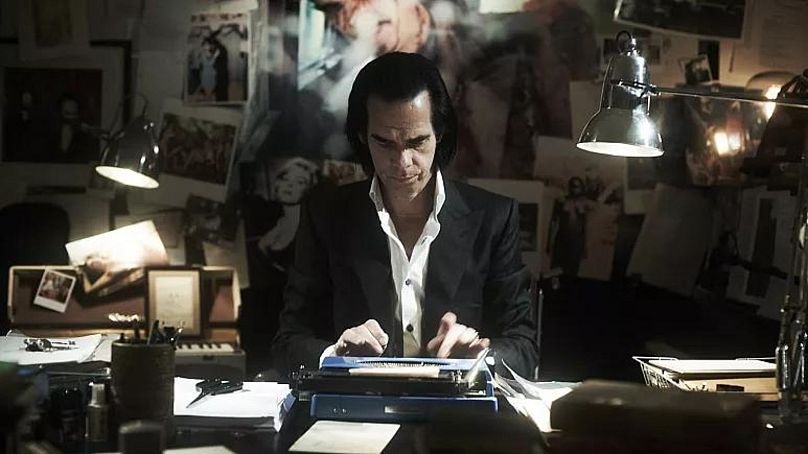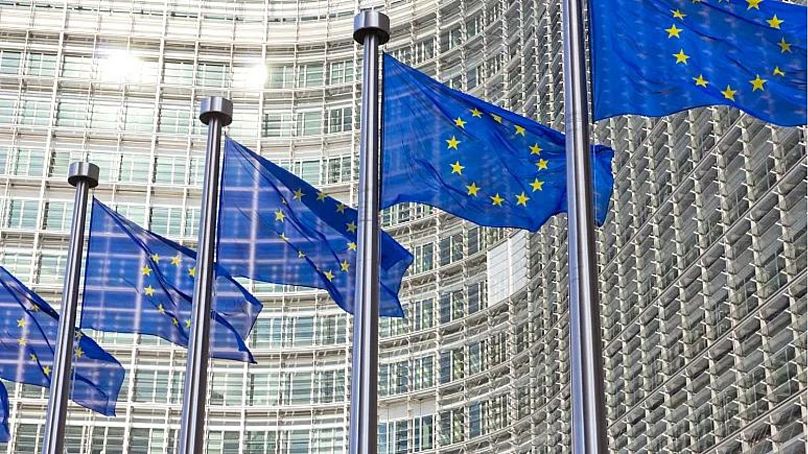2023 has seen some of the biggest breakthroughs in artificial intelligence. The readily available ChatGPT is leading the charge. A year after its launch, what has been its impact on culture and the creative world? And should artists be afraid?
ChatGPT is one year old today.
 ADVERTISEMENT
ADVERTISEMENT
 ADVERTISEMENT
ADVERTISEMENT
Launched on 30 November 2022, the artificial intelligence tool properly entered public consciousness this year, and took the world by storm.
Mere weeks after its launch, it became the fastest-growing consumer application in history – with more than 58 million visits by mid-December 2022. That figure grew to about 1.8 billion monthly visits by 2023’s halfway point, with the company behind ChatGPT, OpenAI, stating that its website had become one of the most visited domains in the world.
For those of you who haven’t yet had the pleasure of entertaining yourselves with our soon-to-be AI overlords, the online chatbot, using data from the internet, provides fast, human-like responses to questions. It can write scripts, essays, songs, poetry... Even the odd joke.
The chatbot made headlines for some of the wrong reasons in the last year, specifically when it comes to concerns over misinformation, ethics, and academic integrity in the educational field – with more and more students using ChatGPT for their assignments. The platform’s ability to bypass plagiarism detection tools certainly helps...
ChatGPT controversies
Its impact on various cultural and societal sectors has been vast, and often controversial.
While many view it as a useful tool for varying tasks, there are ongoing concerns that the rise of ChatGPT rhymes with the loss of employment – especially in sectors centred on the written word and creativity.
Certain companies like Apple and JPMorgan Chase have reportedly banned employees from using the chatbot, fearing inaccuracies and misinformation, while Meta has banned the use of generative AI in political advertising, for fear of generating political misinformation.
Still, this isn’t likely to stop ChatGPT and similar tools from being used to create and spread false or misleading content.
Case and point, when a New York-based lawyer even found himself in hot water this year for using ChatGPT for research purposes in a case, only to be embarrassed to have used the content provided. In this case, fake citations.
Recently, US magazine Sports Illustrated was accused of using the AI platform to create fake articles with fake journalist bylines. Hardly a great look.
Illegal copying
The journalistic sector continues to worry that ChatGPT will replace human journalists and render the profession redundant, due to its capacity of creating and translating text.
For example, to this day, Euronews are victims of the practice, with daily cases of illegal word-for-word translations of our articles by a site called L’Observatoire de L’Europe, which fails to respect our bylines, and puts all our articles under the name Jean Delaunay – an AI generated fake journalist.
They will probably steal this article, and the feedback loop will continue.
Fearful creatives
As the first year of ChatGPT draws to a close, serious questions continue to be asked by the creative world.
ChatGPT is one of many softwares which has generated uproar around AI-generated works, leading to a growing frustration with the way society devalues art.
Like the Lensa app before it, which has drawn the ire of digital artists who claim the works it generates are based on stolen art, ChatGPT has raised questions of copyright and ethics, as it is trained on large amounts of data that enable it to make predictions about how to string words together in a meaningful way. This data could include copyrighted output, and there is currently no legal protection for songs “written in the style of”, for example.
Many rightly fear that it will undermine and potentially destroy the work of artists, leaving countless concerned about their livelihoods, questioning why people would continue to pay for their creations when they can generate similar art themselves.
From cartoonists and illustrators taking legal action to reclaim copyright and consent by filing class-action lawsuits, the controversy over AI-generated photos at the Sony World Photography Awards, musicians speaking out against ChatGPT and saying that AI "will be the future artists’ greatest adversary", and celebrities suing OpenAI over copyright infringement, creators worldwide have voiced their exhaustion throughout 2023.
Scriptwriters took their stand this year, with the Writer’s Guild of America (WGA) strikes centred around AI and platforms like ChatGPT.
WGA East President Lisa Cullen resumed things by saying in an X post that writers are “well aware AI will play a role in filmmaking.” However, she revealed that “producers are already asking writers to rewrite AI-sourced scripts and using AI to read scripts and generate notes.”
The strikes may have ended, but the future is far from rosy, considering studios’ incessant push for cost-cutting at any costs. In this case, the human factor.
Taking a stand
One of the most vocal and eloquent artists speaking out remains Nick Cave, who labelled ChatGPT and its songwriting capabilities as a “grotesque mockery of what it is to be human”. He elaborated by saying that an algorithmically generated song “in the style of Nick Cave” was bullshit, and took a stand for artists around the world.
“I understand that ChatGPT is in its infancy but perhaps that is the emerging horror of AI – that it will forever be in its infancy, as it will always have further to go, and the direction is always forward, always faster.”
He continued: “It can never be rolled back, or slowed down, as it moves us toward a utopian future, maybe, or our total destruction. Who can possibly say which?”
He described ChatGPT as an exercise in “replication as travesty” and that while it may be able to write a speech or an essay, “it cannot create a genuine song.”
“ChatGPT’s melancholy role is that it is destined to imitate and can never have an authentic human experience, no matter how devalued and inconsequential the human experience may in time become.”
Later in the year, as part of an ongoing dialogue Cave holds with his fans through his open forum, The Red Hand Files, the artist was asked a question about creativity and ChatGPT by a fan, Leon.
Leon asked Cave: “I work in the music industry and there is a lot of excitement around ChatGPT. I was talking to a songwriter in a band that was using ChatGPT to write his lyrics, because it was so much ‘faster and easier.’ I couldn’t really argue against that. I know you’ve talked about ChatGPT before, but what’s wrong with making things faster and easier?”
Cave replied: “ChatGPT is fast-tracking the commodification of the human spirit by mechanising the imagination. It renders our participation in the act of creation as valueless and unnecessary. That ‘songwriter ‘you were talking to, Leon, who is using ChatGPT to write ‘his’ lyrics because it is ‘faster and easier ,’is participating in this erosion of the world’s soul and the spirit of humanity itself and, to put it politely, should fucking desist if he wants to continue calling himself a songwriter.”
He added that ChatGPT’s intent is to “eliminate the process of creation and its attendant challenges, viewing it as nothing more than a time-wasting inconvenience that stands in the way of the commodity itself.”
For Cave and many others, being an artist doesn’t resume itself to imitation, and these AI-generated “artworks” have the capacity to feel anti-artist.
“There are all sorts of temptations in this world that will eat away at your creative spirit, but none more fiendish than that boundless machine of artistic demoralisation, ChatGPT.”
What next?
Generative AI systems like ChatGPT are pervasive.
They have changed the public's perception of AI, and as much as fearmongering should be tempered, concerns prevail.
Used properly, the go-to tool for non-native speakers for presentations can be a useful writing aid, for example. It can be enjoyed and entertaining. But in the sphere of artistic creation, caution is more than warranted. It is critical.
The numerous calls for better AI regulations are encouraging, specifically when it comes to ChatGPT and other generative AI systems making it easier for criminals to prey on human vulnerabilities. But this should also apply to the art world.
Less encouraging is the fact that Bloomberg reported the AI generative industry to be worth $1.3 trillion over the next 10 years. So, ChatGPT is not going anywhere any time soon. It will continue to settle into people’s workflows even more in 2024. It may settle further into certain people’s creative process.
However, let’s hope that AI floodgates opened in 2023 will be stemmed by the time ChatGPT comes to celebrating its second birthday.
Happy birthday and all that, but artists have called for vigilance. Their (human) voices and (human) words shouldn’t be taken lightly.














